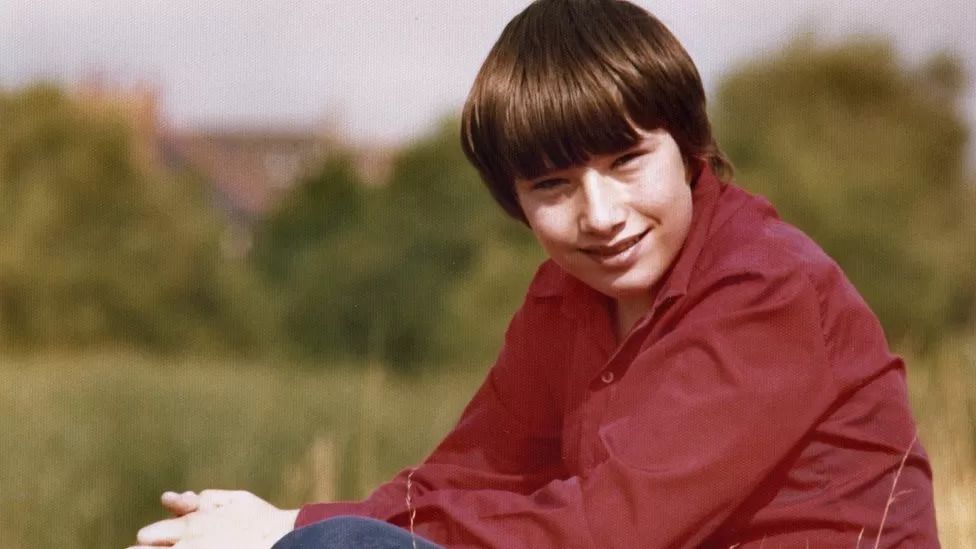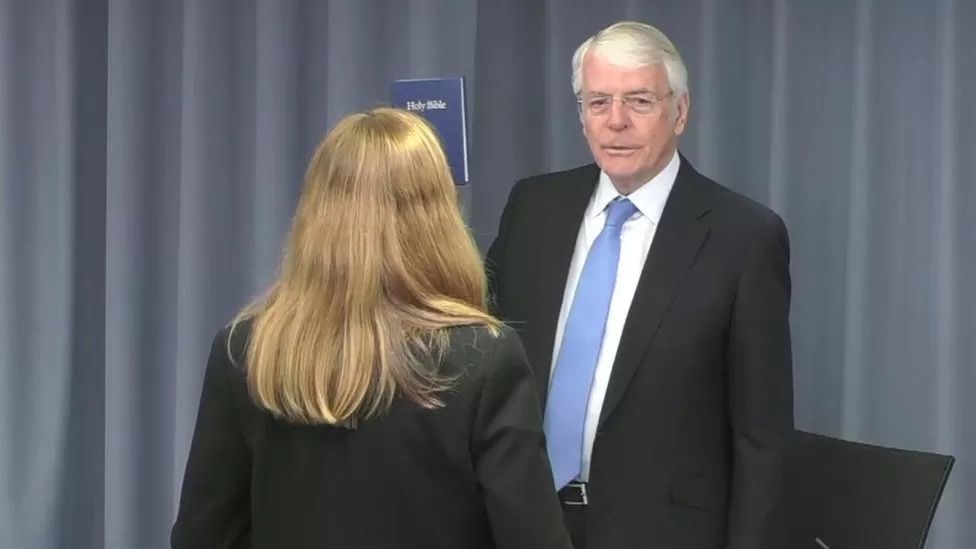
Infected blood scandal: Five facts we have learned
It is thought tens of thousands were infected with HIV and hepatitis between 1970 and 1991 after being given a contaminated drug or blood transfusion.
The inquiry, which started in 2018, has reviewed thousands of documents and heard testimony from 370 witnesses.
It will publish its formal conclusions and recommendations in the summer.
Here are five facts that have been revealed by the inquiry over the past five years.
1. The extent of the scandal
A group of academics hired by the inquiry produced detailed estimates of the numbers infected in the 1970s and 80s.
A total of 1,250 people with haemophilia and other bleeding disorders contracted HIV after being given a protein made from blood plasma known as Factor VIII.
About half of that group later died of an Aids-related illness.
At the time, the UK was not self-sufficient in Factor VIII, so it was often imported from the United States - where prisoners and other at-risk groups were paid to donate.
Another 30,000 NHS patients probably contracted a different virus - hepatitis C - through the same contaminated treatment, or a blood transfusion after surgery or childbirth.
It is thought about 2,050 of that group later died of liver failure or cancer caused by hepatitis C, before an effective treatment became widely available.
 Richard Warwick was infected with HIV when given contaminated blood products as a child
Richard Warwick was infected with HIV when given contaminated blood products as a child2. The impact on children
Researchers found that 380 of those infected with HIV - about one in three - were children, including some very young toddlers.
When that figure was read out at the public inquiry, there was an audible gasp from survivors and relatives in the room.
At Treloar's College, a state-run boarding school in Hampshire, 72 pupils - all haemophiliacs - later died after being given the contaminated treatment.
The inquiry heard devastating testimony from survivors in a week of special hearings about the school.
"I often just think, why me? Why am I still here?" said Richard Warwick, a former pupil who was infected with HIV as a young boy in 1978.
"It's just the guilt of losing all those friends. I can name 10 that I know who are just gone. It's horrific."
3. Who knew and when?
One of the key questions the inquiry will now have to answer is whether more could and should have been done to prevent those infections and deaths.
 Former Prime Minister Sir John Major gave evidence at the inquiry
Former Prime Minister Sir John Major gave evidence at the inquiry
Former Prime Minister Sir John Major drew more gasps from families watching his testimony when he described the scandal as "bad luck".
He later apologised for his choice of language.
The inquiry was shown a letter written in May 1983 by Dr Spence Galbraith, then director of the UK's Communicable Disease Surveillance Centre, to the Department of Health.
It warned that haemophiliacs were being infected with Aids and concluded that "all products made from blood donated in the USA... should be withdrawn".
There was no evidence the letter was acted on at the time.
In his testimony, Lord John Patten, a junior health minister from 1983 to 1985, said he "unequivocally" believed ministers should have been told about the warning and said - if he had - he "would have pressed the panic button".
4. A 'failure of democracy'
There was detailed questioning of ministers and civil servants about the internal workings of government.
Former Conservative health secretary Jeremy Hunt - now chancellor - was asked about official briefings he received as recently as 2012 suggesting the scandal had been an "unavoidable problem".
He described how state institutions can "close ranks around a lie" and said it was a "huge failure of democracy" that it has taken so long to get to the truth.
Another ex-health secretary Andy Burnham, now the Labour mayor of Manchester, said successive governments had "comprehensively failed" the victims over five decades and suggested there may be a case for charges of corporate manslaughter in the future.
5. Compensation agreed
Hundreds of victims of the scandal have received annual support payments but - before this inquiry - no formal compensation had ever been awarded for loss of earnings, care costs and other lifetime losses.
Many of those infected had had to give up jobs and live on benefits because of a series of health problems.
In July 2022, inquiry chairman Sir Brian Langstaff made his first formal recommendation - an unusual move in the middle of a public inquiry.
He said there was a "compelling case" to quickly make some interim compensation payments of £100,000 each.
The government agreed and - in October 2022 - the first payments were made to about 4,000 surviving victims and widows.
But many children, siblings and parents of those who had died have missed out.
That included Laura Palmer, 39, who lost both her parents to HIV/Aids in August 1993, when she was nine years old.
"There are still a lot of bereaved families excluded, so there is more work for us to do," she told the BBC.
Further recommendations on compensation are expected when the inquiry publishes its final report, which is likely to be around the middle of the year.
Video statements were played at the start of the public inquiry in September 2018










